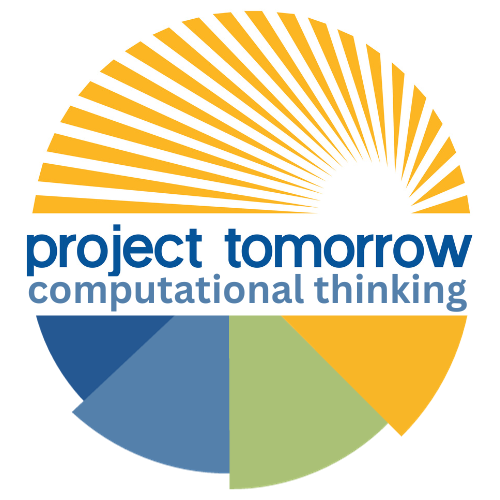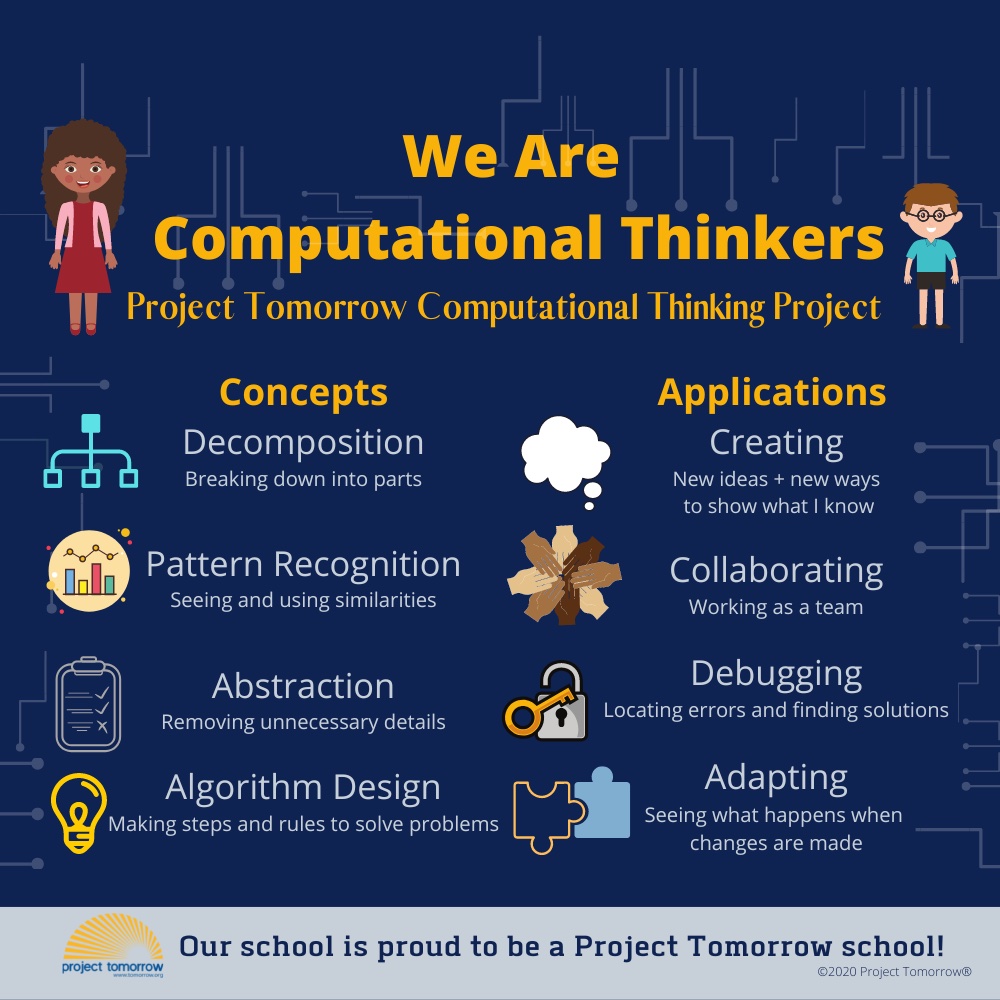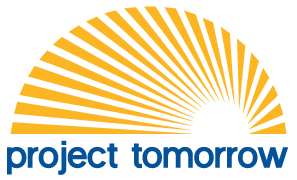Computational Thinking with Project Tomorrow

“This is not about wanting everyone to become a computer scientist. Just like the ability to read, it’s about computational fluency for everyone and the ability to think and create.”
– Dr. Karen Brennan, Harvard School of Education

Computational Thinking is a problem-solving process that enables students to think, learn and create to solve problems. The four pillars at the heart of our work involving Computational Thinking are decomposition, pattern recognition, abstraction and algorithm design. These pillars enable us to think logically about how to organize data and breakdown the steps to solving a problem, transfer our thinking processes to a wider variety of problems, analyze key components of complex problems and generate a list of steps used to solve a problem.
Current Projects
The purpose of our Computational Thinking Projects
- To build computational thinking confidence, competency, and capacity within elementary school teachers.
- To develop student skills and self-efficacy with computational thinking.
- To improve student academic outcomes.
- To validate a new computational thinking professional learning model that is replicable and sustainable across a variety of schools and communities.
Key to our innovative approach is the implementation of a differentiated professional learning model for teachers that recognizes and appreciates each individual teachers’ current readiness to integrate computational thinking concepts, practices, and principles across their core classroom curriculum. Our model then builds upon that individualized readiness with a strategic and comprehensive set of professional learning experiences throughout the school year using an integrated approach to the use of computational thinking tools and resources within instruction.
Central to our model is meeting teachers where they are regarding Computational Thinking (CT). Using a proprietary evaluation tool developed for this project, we identify each individual teacher’s readiness and current level of proficiency with CT to determine an individualized professional learning plan that directly supports the unique growth and development needs of each teacher. Through this work, we aim to increase student knowledge and skills of CT to help support student learning and achievement across core curricular areas. It is also important for us to support learning for all types of learners (including ELL students, students with IEPs and students with lower levels of literacy) by increasing their knowledge and skills to articulate and apply computational thinking concepts and practices in one or more subject areas within their curriculum.
If you would like to learn more about our approach to computational thinking, please contact Dr. Julie A. Evans, CEO of Project Tomorrow (jevans@tomorrow.org or 949-609-4661).
News Coverage
“Establishing Computational Thinking as a Core Literacy: How Project Tomorrow Is Helping Teachers Incorporate Computational Thinking Into Their Instructional Practice”
https://www.siegelendowment.org/insights/establishing-computational-thinking-as-a-core-literacy/
Siegel Family Endowment
7/29/2024
“Teaching the power of problem solving to our students”
https://www.mininggazette.com/news/local-news/2023/11/teaching-the-power-of-problem-solving-to-our-students/
Steve Patchin
11/08/2023
“Four computational thinking strategies for building problem-solving skills across the curriculum.”
https://www.kqed.org/mindshift/59591/four-computational-thinking-strategies-for-building-problem-solving-skills-across-the-curriculum
Kara Newhouse
7/21/2022

